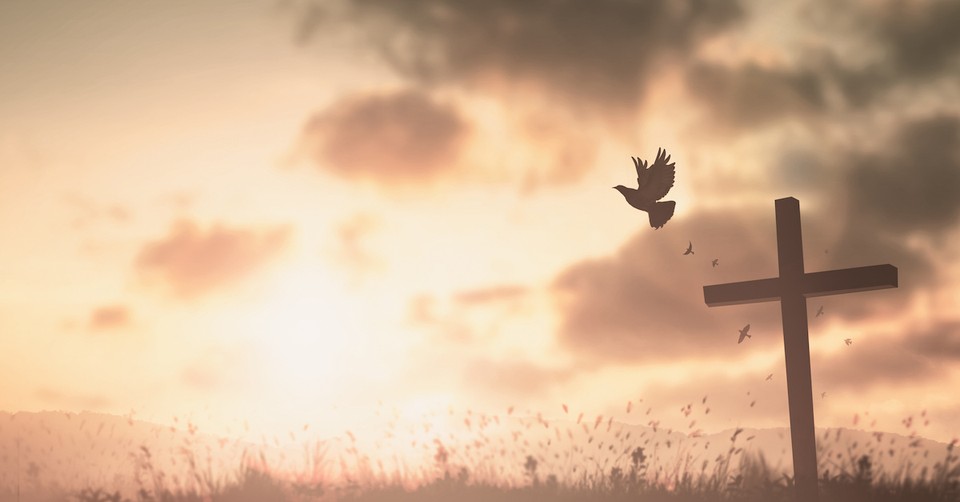Why Does the Bible Use the Dove as a Symbol of the Holy Spirit?

The Bible is full of references to doves, but why was a dove chosen as the symbol for the Holy Spirit? In the modern world, people have released doves at weddings as a symbol of partnership, hope, and new beginnings. Doves also symbolize peace and purity. So, what makes the dove a fitting symbol for the Holy Spirit? Let’s see what the Bible has to say.
What Does the Dove Represent in Scripture?
The first mention in the Bible of a dove is in Genesis 8 during the great flood. After the rain stopped and the water had receded to show the tops of the mountains, Noah sent out a dove on a reconnaissance mission. The first time he sent her out she found no place to rest her foot, but the second time she returned with an olive leaf, a harbinger of peace. The third time he released her she did not return, and Noah knew it was a sign that it was safe to leave the ark (Genesis 8:6-12). It was a sign of a new beginning.
Under the Mosaic Law, the dove was also the only bird that could be used as a sacrifice because of its perceived purity (Genesis 15:9, Leviticus 12:6, and Luke 2:24). The symbol of the dove for purity is also seen in Song of Solomon and the Psalms.
So we see that the dove was a symbol of hope, new beginnings, and purity. These are all traits that could apply to the Holy Spirit as well. For a deeper dive into this topic, check out What Do Doves Symbolize in the Bible?
Where in the Bible is the Dove Associated with the Holy Spirit?
In the New Testament, the main reference to the dove being associated with the Holy Spirit is at Jesus’ baptism:
“When He had been baptized, Jesus came up immediately from the water; and behold, the heavens were opened to Him, and He saw the Spirit of God descending like a dove and alighting upon Him” (Matthew 3:16).
Mark 1:10, Luke 3:22, and John 1:32 repeat this same occurrence, but Luke adds: “and a voice came from heaven which said, ‘You are My beloved Son; in You I am well pleased.’"
When the Holy Spirit descended like a dove at Jesus’ baptism, it confirmed his divinity and his anointing. Jesus fulfilled the symbolism of the dove by being pure, an acceptable sacrifice, and the giver of peace. Yet, Jesus proclaimed that it was needful for Him to return to the Father so that the Holy Spirit could come:
"And I will pray the Father, and he shall give you another Comforter, that he may abide with you for ever; Even the Spirit of truth; whom the world cannot receive, because it seeth him not, neither knoweth him: but ye know him; for he dwelleth with you, and shall be in you….But the Comforter, which is the Holy Ghost, whom the Father will send in my name, he shall teach you all things, and bring all things to your remembrance, whatsoever I have said unto you. Peace I leave with you, my peace I give unto you: not as the world giveth, give I unto you. Let not your heart be troubled, neither let it be afraid" (John 14:16-17, 26-27).
Why Did God Choose a Dove to Represent the Holy Spirit?
The first mention of the Holy Spirit is in the opening verses of the Bible: “The earth was without form, and void; and darkness was on the face of the deep. And the Spirit of God was hovering over the face of the waters” (Genesis 1:2). The Spirit was hovering, much like a bird in flight. Throughout the Old Testament, the Holy Spirit would come to a prophet, king, or soldier to empower them to prophesy or lead the people in a particular moment. Then, it would return to the Father in Heaven. For more information on the Holy Spirit in the Old Testament, read 10 Roles of the Holy Spirit in the Old Testament.
In the Old Testament, the Spirit of God dwelled in the temple in the Holy of Holies, but interaction was limited because sin formed a barrier between man and God. So, when the Holy Spirit descended on Jesus, it was a symbol of a new beginning. Jesus, as the perfect and pure sacrifice, took down the veil that separated man and God for once and all time. This opened the way for the Holy Spirit to dwell with believers continually.
Just as the dove confirmed Christ’s anointing and identity as the Son of God, the Holy Spirit marks believers as children of God. Ephesians tells us that we are sealed by the Holy Spirit. A seal in biblical times acted as a mark of ownership. It shows we live under our Father’s protection.
The dove not only symbolized a new beginning in the way man could relate to God, but it also symbolized a new beginning in the way believers live their lives. We are no longer enslaved to sin, and we are empowered to live a godly life. That is not to say we never sin or make mistakes but that we can ask forgiveness and have the power, through the Holy Spirit, to become more like Christ every day.
Like the dove bearing the olive branch, the Holy Spirit also brings believers the peace that passes understanding (Philippians 4:7). As believers, we are daily in the presence of God and can tell him all our worries because He tells us to cast them on him (1 Peter 5:7).
For a more detailed look at this topic, see Why is the Dove Often a Symbol for the Holy Spirit?
How Does the Symbol of the Dove Impact the Christian Life?
From the moment we accept Jesus as Lord, we receive the Holy Spirit as a seal upon our lives. Just like the dove alighting on Jesus, the Holy Spirit indwells us and seals us. We no longer need to fear the final judgment of sin because Christ paid the price as the pure sacrificial lamb. We can now know true peace in the constant presence of God.
Just as the dove represented God’s anointing on Christ’s ministry, the Holy Spirit was sent to empower the believer to live a holy life and obey God's commands. He also serves as a comforter in trials and a guide to show us God’s will. He alights on our spirit, but unlike the dove, He will never leave us.
Why is the Dove a Powerful Symbol of the Holy Spirit?
The dove is a reminder of the beauty, purity, and peace of the Holy Spirit as it is at work in our lives. We are told to be “wise as serpents and harmless as doves” (Matthew 10:16). Our attitudes and behaviors should be pure and peaceful to the world while still following the wisdom of the Holy Spirit.
Just as the Holy Spirit descended like a dove on Jesus and his ministry at His baptism, the Holy Spirit comes to us as we are called out as Jesus’ witnesses in the world:
"But ye shall receive power, after that the Holy Ghost comes upon you: and ye shall be witnesses unto me both in Jerusalem, and in all Judaea, and in Samaria, and unto the uttermost part of the earth" (Acts 1:8).
So while the Holy Spirit is represented with the peaceful symbol of the dove, He is also represented as a powerful force in the life of believers. At Pentecost, Scripture says, "And there appeared unto them cloven tongues like as of fire, and it sat upon each of them. And they were all filled with the Holy Ghost, and began to speak with other tongues, as the Spirit gave them utterance" (Acts 2:3-4).
After Jesus' resurrection, tongues of fire descended upon the disciples instead of a dove. This illustrates how the Holy Spirit’s role changed after Christ’s resurrection. No longer was He contained in the Holy of Holies or sent for a particular moment. He was released upon the earth to empower believers in a much more personal relationship.
The presence of the Holy Spirit in our lives gives us the ability to start fresh each new day in the mercies of God and be His witness in the world. Let us share His light and love in a broken world so that they, too, can have a new beginning in Christ and receive the power and peace of the Holy Spirit for themselves.
Further Reading
Why is the Dove Often a Symbol for the Holy Spirit?
10 Roles of the Holy Spirit in the Old Testament
What Do Doves Symbolize in the Bible?
Photo credit: ©GettyImages/Arthit_Longwilai
Linda Lyle is a writer, teacher, knitter, and unintentional collector of cats. She has written articles for the Alabama Baptist, Open Windows, Refresh, as well as multiple novels and novellas. Her newest book, 5-Minute Prayer Plan for When Life Is Overwhelming, is set to release in October. She spins yarns on her blog The End of My Yarn at lindalyle.com.
Originally published October 31, 2024.







